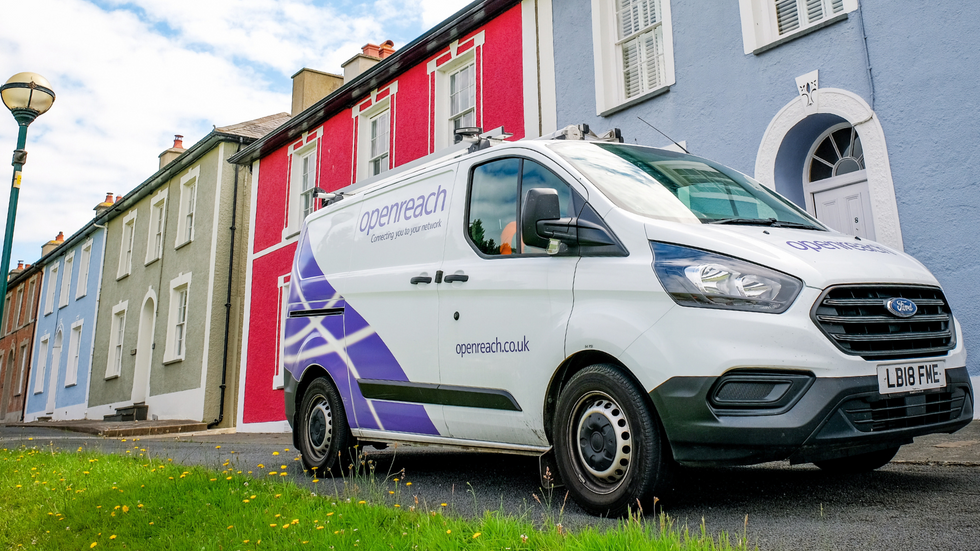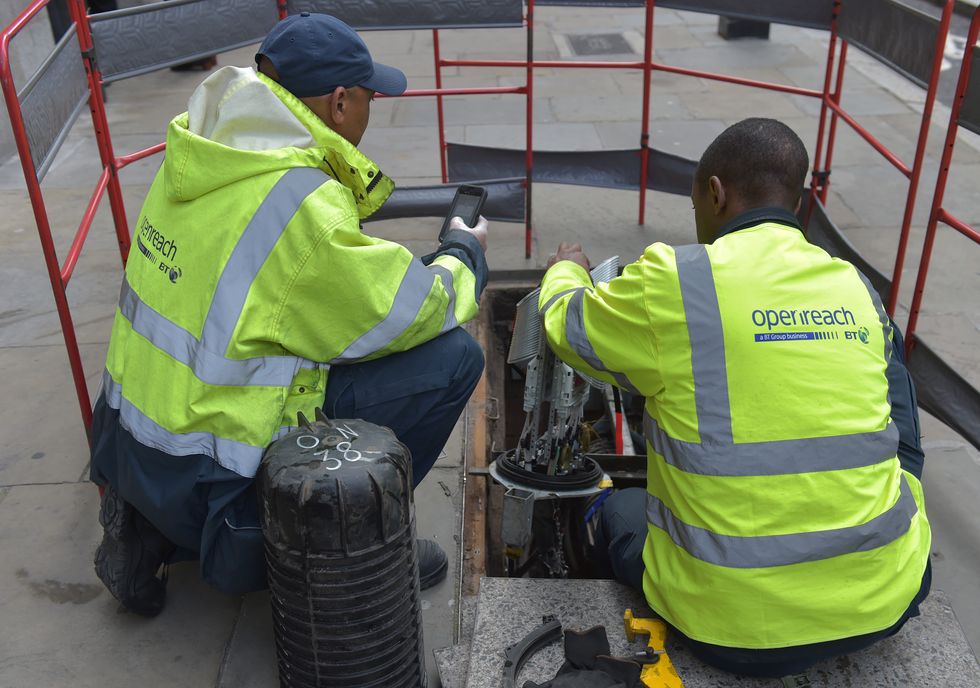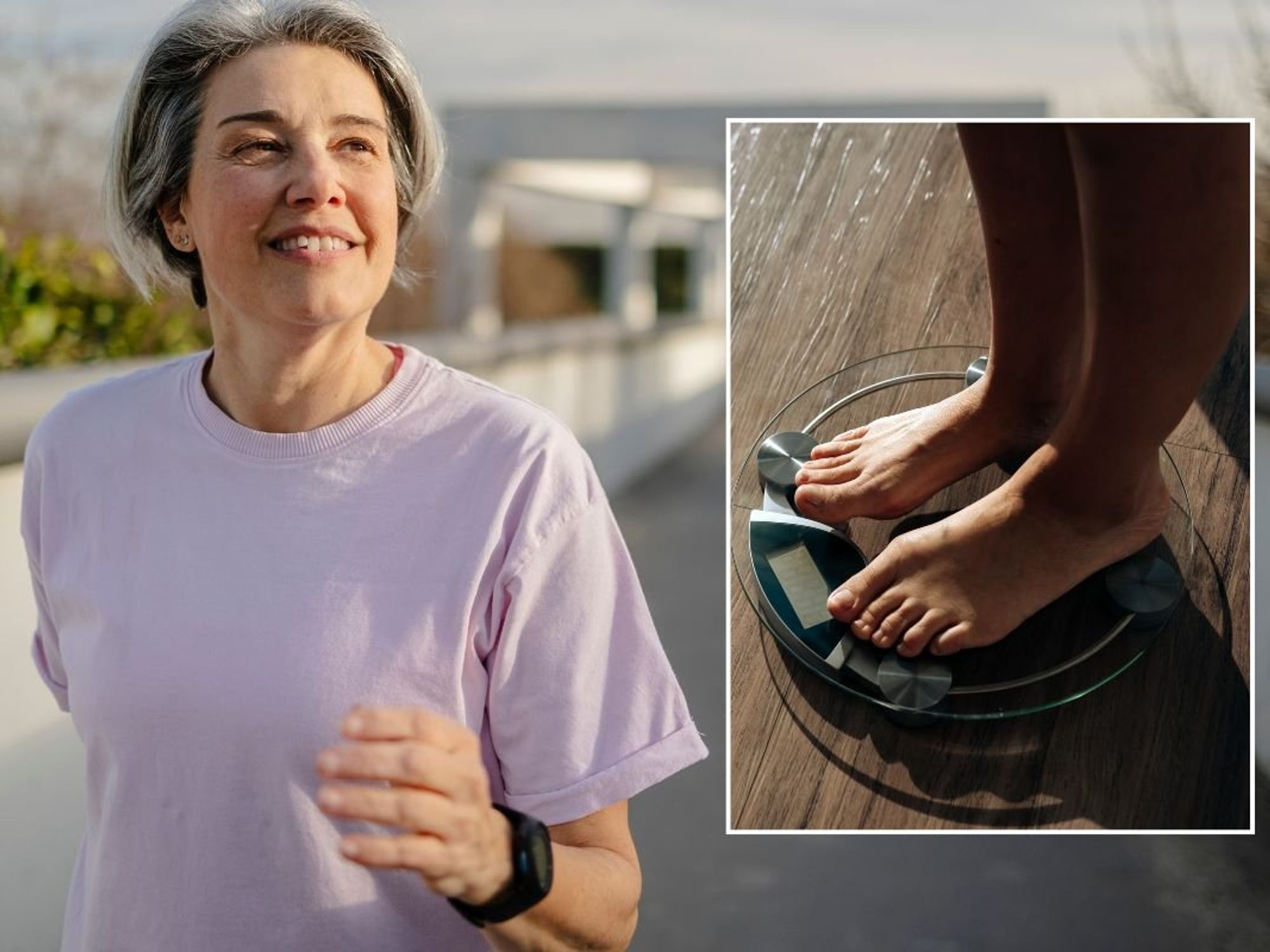BT will postpone UK landline switch-off until 2027 after issues with safety alarms
All of the changes coming to traditional copper-based landlines across UK, explained in under 5-minutes
|
Despite the 13 month delay, BT says "the urgency for switching customers onto digital services grows by the day"
- BT confirmed plans to postpone switch-off of copper landlines until 2027
- Revised timeline follows issues with telecare alarms
- 1.8 million vulnerable people in the UK rely on these emergency alarms
- Government was forced to step in after alarms failed on new phone lines
- BT will not upgrade vulnerable people until next spring at the earliest
Don't Miss
Most Read
Traditional landlines have received a last-minute stay of execution.
BT has confirmed it will postpone the switch-off of all copper-based phone lines across the UK until 2027 — 13 month later than originally planned. The original deadline would see the biggest telecom providers move millions of customers from a traditional landline to a broadband-powered alternative by the end of next year — a major shake-up that a huge percentage of Britons aren't even aware is coming.
After suspending upgrades nationwide last year, BT has restarted the process of switching its customers over to Digital Voice landlines, which rely on the internet to connect your call — exactly like WhatsApp, FaceTime, or Skype. The underlying technology is known as VoIP (Voice over Internet Protocol) or All-IP calls.

Personal alarms, often worn around the neck on a lanyard or on a bracelet, can make life-saving calls to emergency services with the touch of a button
|PRESS ASSOCIATION
Telecom providers say these phone lines should offer clearer call quality and modern features, like placing incoming calls in a queue when you're already speaking on the phone and blocking all withheld numbers.
BT — the single largest provider of landlines and broadband nationwide, Virgin Media, Sky and other UK telecom providers are not alone, with many operators across Europe also in the process of ripping up ageing copper-line landlines.
These phone lines, known as PSTN (Public Switched Telephone Network) in industry lingo, have served as the backbone of communication across the UK for well over 100 years and telecom firms have complained that it's becoming increasingly tough to find the parts required to maintain and repair this Century-old technology.

Openreach, which is owned and operated by BT, maintains nationwide broadband and phone line infrastructure used by brands including EE, Sky, TalkTalk, Plusnet, and BT
| OPENREACH PRESS OFFICEHowever, the process of switching households to Digital Voice has been plagued with a slew of issues, which saw BT customers lose access to the landline number they’d held for 50 years and others stranded without a landline connection for days. But the biggest headache has been for the 1.8 million elderly and vulnerable people living in the UK who rely on telecare safety alarms.
Compatibility issues with internet-powered landlines has caused some critical calls to fail.
These personal alarms, often worn on a lanyard around the neck or on a bracelet, are designed to be activated in a health emergency or after a fall. Working alongside the UK Government, BT and other telecom providers have agreed to a series of new measures to protect vulnerable customers and those with additional needs, including telecare users.
Landline-only customers, those who use telecare or who have additional needs will not need to make the switch before the revised 2027 deadline, BT has announced. Telecom providers are developing new landline technology that could solve some of the compatibility issues with Digital Voice.
Confirming the changes to the timeline, BT Chief Security and Networks Officer, Howard Watson told GB News: "The urgency for switching customers onto digital services grows by the day because the 40-year-old analogue landline technology is increasingly fragile.
"Managing customer migrations from analogue to digital as quickly and smoothly as possible, while making the necessary provisions for those customers with additional needs, including telecare users, is critically important.
"Our priority remains doing this safely and the work we’re doing with our peers, local authorities, telecare providers and key Government organisations is key. But more needs to be done and we need all local authorities and telecare providers to share with us the phone lines where they know there’s a telecare user."
BT's revised time for end of traditional UK landlines
April 2024 — After it voluntarily paused the roll-out of next-generation landlines following initial reports of problems with telecare devices, BT resumed non-voluntary migrations for customers who have not used their landline in the last 12 months, who do not identify as vulnerable or have additional needs, or those who do not rely on a telecare alarm. Switching to Digital Voice over full fibre where available was offered on an opt-out basis at the start of the process, BT has confirmed.
From Summer 2024 — BT plans to "ramp up non-voluntary migrations for customers who do not identify as vulnerable or have additional needs, in areas where data sharing agreements have been signed with the local authority or telecare provider". However, customers who don’t use broadband, which includes landline-only consumer customers and business customers with specialist connectivity requirements, including some alarms, lift and emergency lines, ATMs and payment terminals will not be switched initially.
As we've previously reported, BT is testing a new dedicated landline service that offers many of the benefits of a traditional copper-based landline, while still moving customers away from analogue PSTN.
BT has confirmed that equipment will be installed in local telephone exchanges that will allow consumer and business customers who do not have broadband to use their landline in the same way as they do today until a digital solution becomes available or 2030, if that comes sooner. Trials have already begun with a nationwide rollout for eligible customers expected this autumn.
From Spring 2025 — At this point, BT will start to contact customers who identify as vulnerable or with additional needs about the switch in areas where data sharing agreements with Local Authorities or Telecare companies are in place and in-home support for telecare users is available.
All customers will be contacted at least four weeks in advance before making the switch, to ensure they are ready to move to a digital landline. Engineering appointments will be made ahead of the switch and additional support will be provided on the day to ensure that customers are left with a working telecare device.

BT is in the process of switching off analogue landlines for millions of customers nationwide, transitioning them over to its broadband-powered "Digital Voice" system that relies on VoIP
| BT PRESS OFFICESpeaking about the revision to the timeline, Ernest Doku, telecoms expert at Uswitch.com, told GB News: "This move to digital broadband connected lines will deliver speeds as high as 10 times faster than current technologies — but it’s entirely apparent that the roll-out shouldn’t be at the expense of the needs of vulnerable customers.
"Personal care alarm systems and other devices connected to landlines need to be considered during the shift to digital. Providers have a responsibility to look after their customers, and must either provide them with time to migrate to other solutions or offer alternative options to allow them access to emergency services directly.
"Customers may also be able to explore other full fibre providers in their area, though should seek professional help to ensure that any personal care alarm systems which are linked to their landline are compatible with their new supplier if they change provider. This is a complex UK-wide engineering project with technical challenges to overcome, and BT’s revisions act as a strong reminder that the landline is used for more than just calls, and access to it mustn’t be overlooked."
When it announced the move to broadband-powered landlines, BT promised the all-digital system would offer clearer calls and better protection from fraud and spam calls.
If you're already using a full-fibre internet connection at home, nothing will change as the company has offered "Digital Voice" to fibre customers as standard for many years.
BT suspended sales of traditional landlines to all new customers in September 2023. While many of the most popular personal alarm systems do work with digital landlines, a power cut or internet drop-out can cause them to fail, while copper phone lines typically continue to work even during power cuts.
LATEST DEVELOPMENTS
- Broadband giants brought to heel in victory for millions of vulnerable Brits
- 3 incredible Sky Glass features you'll find on Freely
- Update your Android phone to stop thieves from breaking into your device
- Vodafone unleashes supercharged broadband upgrade BT can't match
Speaking about a spate of issues around the transition to all-digital phone lines, Consumer watchdog Which? Director of Policy and Advocacy, Rocio Concha said: “We’ve heard of vulnerable people being left unable to contact emergency services due to issues with digital migration, so it is positive that the Government is getting assurances from operators as well as providers that they will protect customers during the switchover.
“The Government and Ofcom must be prepared to take tough action if firms fail to keep up their side of the bargain. The transition to digital landlines is necessary and offers advantages, but it is vital that no-one is left behind as the migration continues.”
BT customers over the age of 70 are not proactively switched to Digital Voice, the company has reassured. But since July 2023, BT has started to trial switching customers aged between 70-74 who live in urban areas and have the latest broadband hub and don't regularly make landline calls. According to BT, these trials have gone well to date, with 98% of customers choosing to make the switch.

Openreach engineers work on a broadband cable buried underneath the pavement. The company maintains infrastructure that connects to almost every home and business in Britain
| PACountdown to the death of traditional copper landlines
1992 – Introduction of the first dial-up internet service to UK customers, Pipex
2000 – First UK home broadband launches in the UK ...and is taken up by a single customer in Essex
2008 – First residential full-fibre broadband connection goes live in a housing development in Ebbsfleet, Kent. It becomes the first place nationwide to use fibre-optic cables directly to the home, with telephone services and broadband delivered over the same cables
2010 – Services with speeds of 30Mbps (megabits per second) are sold in the UK. With this rate of speed, internet users can download or stream music, games or TV shows
2013 – The first ‘fibre only’ exchange goes live in Deddington. The Oxfordshire village was chosen as a pilot location for the first fibre-only exchange
2018 – Plans to retire the old telephone network within seven years are announced. This will see everyone in the UK upgraded to a digital phone line, laying the foundations for the future
2019 – Salisbury becomes the first "Openreach Full Fibre" city in the UK. The Wiltshire city has the fastest citywide network in the UK
2020-2023 – Openreach ends the sale of copper landlines, beginning at an exchange level and then nationally. From September 5th 2023, BT customers across the UK could no longer buy traditional phones
2027 – Retiring the old analogue phone network. By this time, everyone in the UK will be upgraded to a digital phone line – which will use the broadband network to make calls in a similar way to other Voice Over Internet Protocol (VOIP) technologies like Skype, Facetime, and Microsoft Teams











